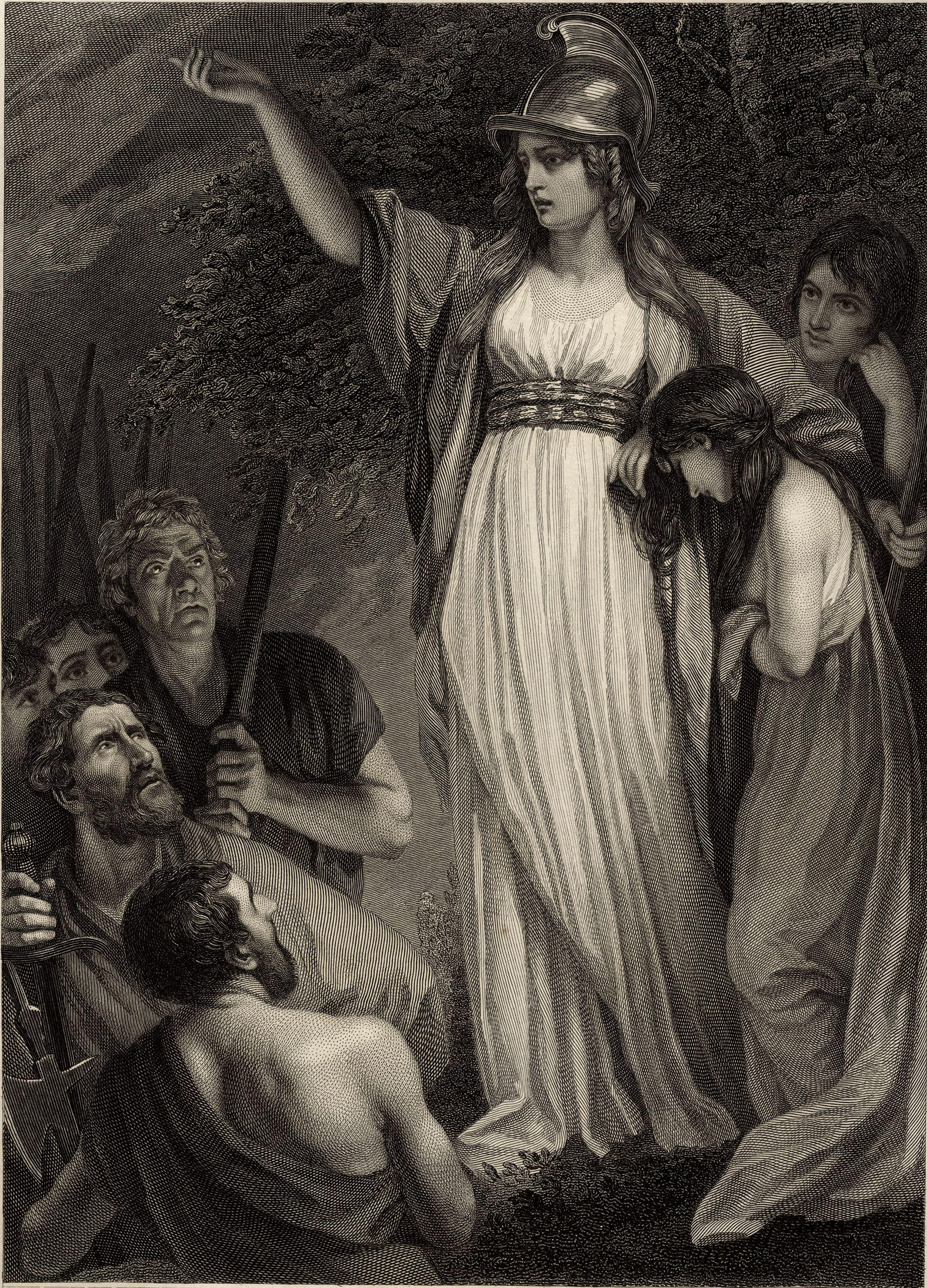
Introduction to Barbarian Ancestor Worship
We are proud to announce the Barbarian Ancestor Worship Series. This series delves deep into the history of significant figures across indigenous European traditions, spotlighting those who fiercely defended their people. Notable individuals include the Celtic Vercingetorix, who led a unified resistance against the Roman Empire; Boudicca, the queen who rebelled against Roman occupation in Britain; and the Germanic Arminius, known for his strategic defeat of three Roman legions in the Teutoburg Forest.
Defining Ancestor Worship
In using the term ‘ancestor worship,’ it’s essential to clarify that our interpretation extends beyond genetic lineage. It’s not solely about blood relations but is a broader recognition and veneration of individuals who’ve forged and shaped cultural, spiritual, or even ideological paths that resonate with us today. To ‘worship’ in this context means to honor and remember those predecessors, whether we are tied by blood or by shared values, beliefs, and aspirations. Regardless of their heritage, everyone can connect with and honor the legacies of these transformative figures in indigenous European traditions.
Contrary to a narrow definition limited to direct blood relatives. Heroes and pioneers who have left indelible marks on culture, spirituality, or history are revered similarly as direct ancestors. Adopted members of tribes or clans would often inherit and venerate the ancestors of their new community due to the importance of shared experience over genetics. Similarly, figures known for their profound spiritual or ideological teachings became spiritual forebearers, guiding entire communities. Communal pillars, founders, or pivotal personas who, regardless of direct lineage, were revered by whole communities. Embracing this multifaceted perspective brings us closer to the true spirit and practice of historical ancestor veneration among the indigenous people of Europe. They often emphasized shared values, teachings, and communal experiences rather than merely genetic ties.
The core objectives of this series are:
- Educating readers on indigenous European history.
- Establishing an ancestor worship tradition rooted in this vast historical backdrop.
- Harnessing this tradition to challenge contemporary notions of whiteness and to nurture a rich, inclusive identity.
The Influence of Ancestors
Our releases for the Ancestor Worship Series will detail how pivotal individuals left indelible marks on European history and offer insights into practices that can help contemporary admirers connect with their legacies.
These figures’ profound influence during their respective eras cannot be overstated. Yet, their absence from mainstream consciousness isn’t accidental. It’s an intentional result of a concerted effort to portray the history of the indigenous peoples of Europe as trivial or primitive.
But there’s an inherent power in acknowledging this history. By understanding the links between the Roman Empire’s expansion, the onset of Christianization, and today’s prevailing cultural narratives, we tap into a rich tapestry of indigenous resistance available to all of us.
The Death of Death
In today’s age, we increasingly encounter a reality where the representation of things often overshadows and even supplants their original purpose. This world of amplified representations, where everything becomes a mere reflection of itself, robs events and experiences of their inherent depth.
Such a phenomenon becomes especially glaring when observing how society approaches death. Historically revered and respected, death in many modern cultures has been tucked away from view, sanitized, and commercialized. Death is acknowledged primarily when it affects the machinery of the state and capital. News personalities might quantify it in bar charts and line graphs that inform “economic forecasts” (a term borrowed from predicting natural phenomena, suggesting that Capitalism is as inevitable as weather patterns). In legal battles over inheritances, the deceased’s legacy is trampled by disputes over material possessions. As a result, death becomes another transactional event, an experience robbed of its intrinsic meaning.
This altered perception doesn’t just influence our understanding of death but also impacts how we value life. If death becomes a sterile, distant concept, then life, in juxtaposition, loses all urgency and vibrancy. By distancing ourselves from the genuine experience of death through layers of representation, we inadvertently drift away from an authentic experience of living.
Against this backdrop, reconnecting with indigenous traditions and deep-rooted practices around death and ancestor veneration emerges as a powerful counter-narrative. By immersing ourselves in these raw, genuine experiences and teachings, we can challenge the prevailing superficiality and reintroduce depth and authenticity to our understanding of life and death.
Empowerment through Collective Memory
Every individual embodies a unique blend of strength and wisdom. When communities unite, honoring their shared history and seeking transformation and liberation, their collective power magnifies. We thank the ancestral spirits who have blaze new trails for us.
Drawing from the wellspring of wisdom from the past, we understand the interconnectedness of all eras. The indomitable spirit of our ancestors, marked by their challenges and victories, continues to shape our path. Their essence is alive within us, fueling our aspirations and dreams.
In an era often characterized by alienation, it’s imperative to sound the carnyx once more, echoing the calls of old. As we march forward, let’s be guided by the legacy of those who came before us, seeking to reclaim a culture, spirituality, and sense of community that defines us.
Though many battles have passed, the war is far from over.
For further reading see: Vercingetorix: The Great Warrior King of Gaul
Toutā Caillte is entirely funded by our readers. Please consider donating via my Patreon to fund future writing and ecological projects. Thanks!